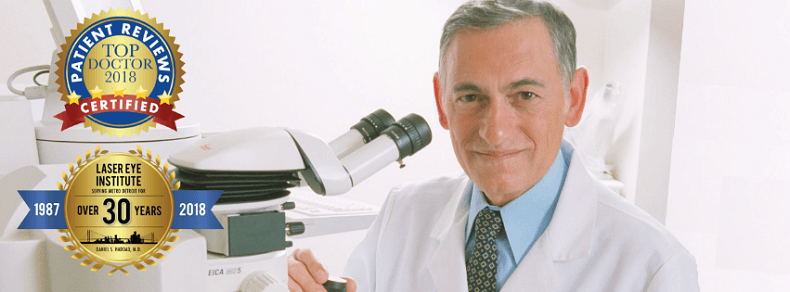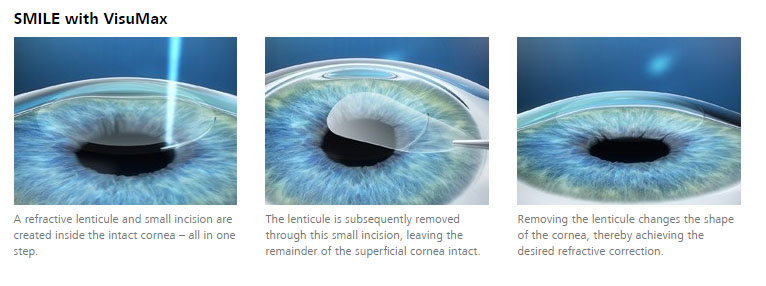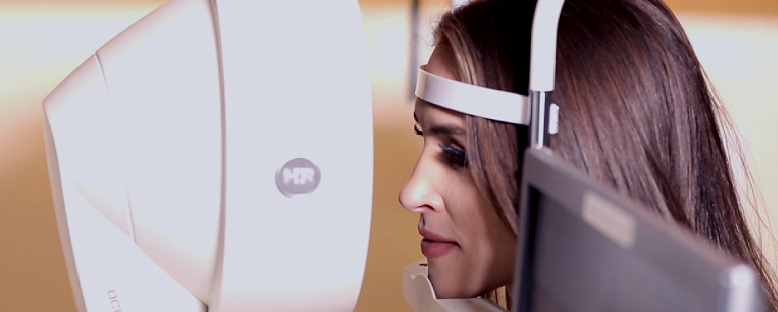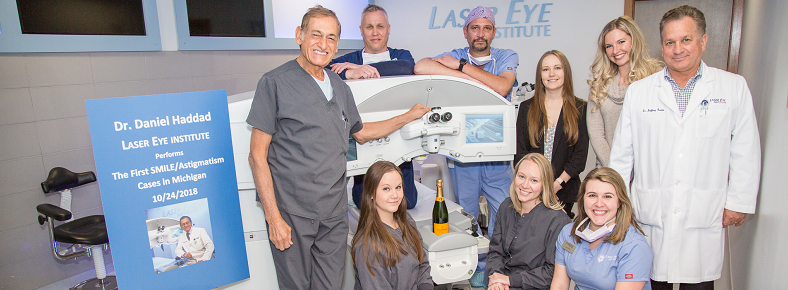12 SMILE LASIK Questions Answered
You may have heard about the newest, most advanced form of vision correction and have a curiosity about it – What is SMILE? Is it a form of LASIK? Am I a candidate for SMILE?
However, before we dive in I want to build some trust and qualify the information I am about to share; after-all you can’t believe everything you read on the internet!
First & foremost, Dr. Haddad is a living legend. With over 30 years of experience, he is an habitual innovator that has developed, patented and introduced several techniques to help revolutionize the Laser Vision Correction (LVC) industry. When he’s not lecturing at a conference in Paris or accepting lifetime achievement awards in the U.S., he’s mastering his craft and stamping “a Michigan first” to many of his procedures.

Now that we got that out of the way let’s talk about 12 frequently asked questions SMILE seekers have been asking since early 2017.
1. Which one is better, SMILE or LASIK?

2. Does SMILE cost more than LASIK?
While SMILE and LASIK use different laser technologies to re-create the clarity of your vision, the costs of the two procedures are often very similar. Given Dr. Haddad’s LVC recommendation is customized to your prescription, age, lifestyle (and more), the price of SMILE will vary, while averaging around $2,000/eye.
3. Will SMILE hurt?
SMILE is one of the gentler vision correction procedures available. Patients consistently tell us it was very comfortable. Some patients do say they feel a tiny amount of pressure around their eye for a few seconds during the procedure, but are quick to clarify that it didn’t hurt at all!
4. How soon will I be able to work after SMILE?
Patients often return to most of their daily activities, including going back to work, the day after their SMILE procedure. While LASIK patients are asked to avoid wearing makeup for one to two weeks after their LASIK procedure, SMILE patients can begin wearing makeup the next day. Patients can generally resume all daily activities four to seven days after their procedure.
5. Why haven’t I heard of SMILE before?
While SMILE is a new, FDA-approved procedure in the United States (early 2017), it has been performed worldwide for many years. In fact, more than 1,000 doctors around the world have performed the procedure, and more than 1.7 million eyes have benefited from clearer vision thanks to SMILE.
6. Why don’t more practices offer SMILE?
To perform SMILE, you must invest in the most advanced technology. This serious investment may steer other surgeons away, especially the ones that are trying to squeeze every penny out of their patients. Along with LASIK and LASEK (PRK), SMILE is a necessary and valuable part of a complete laser vision correction program. SMILE isn’t the right procedure for everybody, but we believe that our patients should have access to every possible technology to ensure they can receive the best possible outcome. If a doctor isn’t able to offer LASIK, PRK and SMILE, can you be sure you’re getting the best procedure for your eye and lifestyle?

7. Is SMILE safe?
Yes. SMILE is a proven and consistent Laser Vision Correction (LVC) procedure that has created better vision for hundreds of patients. As with any surgical procedure, there are possible risks and side effects. After a thorough eye exam and consultation, Dr. Haddad will discuss your options with you and help you make the right decision for your vision.
8. How many SMILE procedures have been performed?
SMILE is the fastest-growing laser vision correction option in the world. Worldwide, more than 1.7 million SMILE procedures have been performed by more than 1,000 surgeons.
9. Is SMILE FDA approved?
Yes. The FDA approved SMILE for the United States in September 2016 after rigorous trials and testing showed it to be a consistent, effective way to improve vision and reduce dependence on glasses and contacts.
10. Will the results of my SMILE last forever?
Yes and no. Your SMILE procedure is permanent, but as with every part of your body, your eyes will continue to age and your vision will be affected as you get older. SMILE cannot prevent cataracts and presbyopia, but most SMILE patients enjoy many years of clearer vision without glasses and contacts.
11. Can SMILE fix my astigmatism?
Yes! And Dr. Haddad was the first in Michigan to perform SMILE with Astigmatism

12. Will I require reading glasses after SMILE?
Most patients who receive SMILE tell us that they use their glasses and contacts very little, or not at all! The goal of SMILE is to reduce or eliminate your dependence on glasses. Based on the anatomy of your eye, Dr. Haddad will be able to tell you more about the results you can expect from SMILE.
Share This Article
Posted by Dave Lemieux
David Lemieux, BA from Oakland University is a LASIK expert and marketing professional that has worked with Dr. Dan Haddad and the Laser Eye Institute since 2017. David believes in education and cutting through the noise to deliver facts and opinions about LASIK, SMILE, and all things Laser Vision Correction.